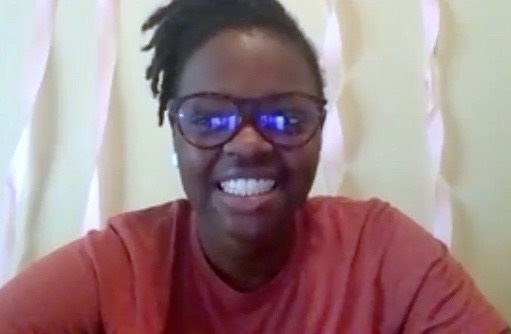More than half of Americans admitted to sharing made-up news online, with the majority not realizing it was misinformation. In the time of COVID-19, the need for people to be critical media consumers is now more pressing than ever.
Although there are “bad actors” who intentionally spread misinformation, Heaven Taylor-Wynn says that it’s up to each of us to do our due diligence to verify information before we share it. In the time of COVID-19 where information evolves quickly and is prone to manipulation, she says that media literacy is more important than ever.

Taylor-Wynn is a digital journalist living in Florida. She is the leader of social strategy at MediaWise, a Poynter group that was established to teach youth media literacy and how to identify fact from fiction. Prior to the pandemic, Taylor-Wynn would travel around the U.S., showing teens and young adults how to verify information using tools like reverse image search and how to laterally read by vetting a site’s legitimacy with other sources before consuming information from it. As well as having education aimed at youth, MediaWise also has fact checking available for first time voters and an upcoming project to help seniors with media literacy.
Forced to scrap a bus tour due to COVID-19, MediaWise continued to develop existing virtual alternatives to an in-person model. MediaWise posts daily Instagram fact-checking videos and IGTVs, an Instagram developed long-form video app. All of their COVID-related content is saved in a highlight reel so it can be reviewed later. They also encourage Twitter followers to tweet anything that looks like it needs verifying with the hashtag #isthislegit, where it will be checked by a fact checker.
“We say this might be accurate when it goes up but note that it’s possible it won’t be by next week,” said Taylor-Wynn, referring to COVID-related information. “Things change very rapidly right now.”
Taylor-Wynn said it’s hard to say whether people have become more critical of the work that she’s a part of during the duration of COVID. Rather than tell people what’s real and what’s fake, MediaWise strives to show their process and how they reach their conclusions. Despite this, she stated that there are always people who believe that any media will have an agenda.
“There are people who generally already have their minds made up beforehand,” Taylor-Wynn said. “People will feel how they feel. This is a difficult time and people don’t know who to trust.”
She stated that she would be interested to see how public trust of journalists and the news industry as a whole would change post-pandemic. She also wondered whether there would even be a return to newsrooms. She referenced her Poynter colleague Tom Jones who had written an article about seven news outlets who have already prepared to have employees work from home for the rest of the year.
The amount of COVID and non-COVID information that Taylor-Wynn has to consume for her job makes it difficult for her to find a healthy balance and has been “a little detrimental” to her mental health.
“It’s challenging. And then you add in the layer that I’m Black, so the social justice movement that’s going on right now, I have feelings about that,” said Taylor-Wynn. “There are things that I’d like to be a part of but I’m choosing not to because of my job and because of COVID.”
“But journalism is so unique in that we’re essentially writing history. And if you’re like me, if you’re a woman, or Black, or any other marginalized group, your voice matters and you’re needed. I don’t think there’s a better time to be a journalist.”

